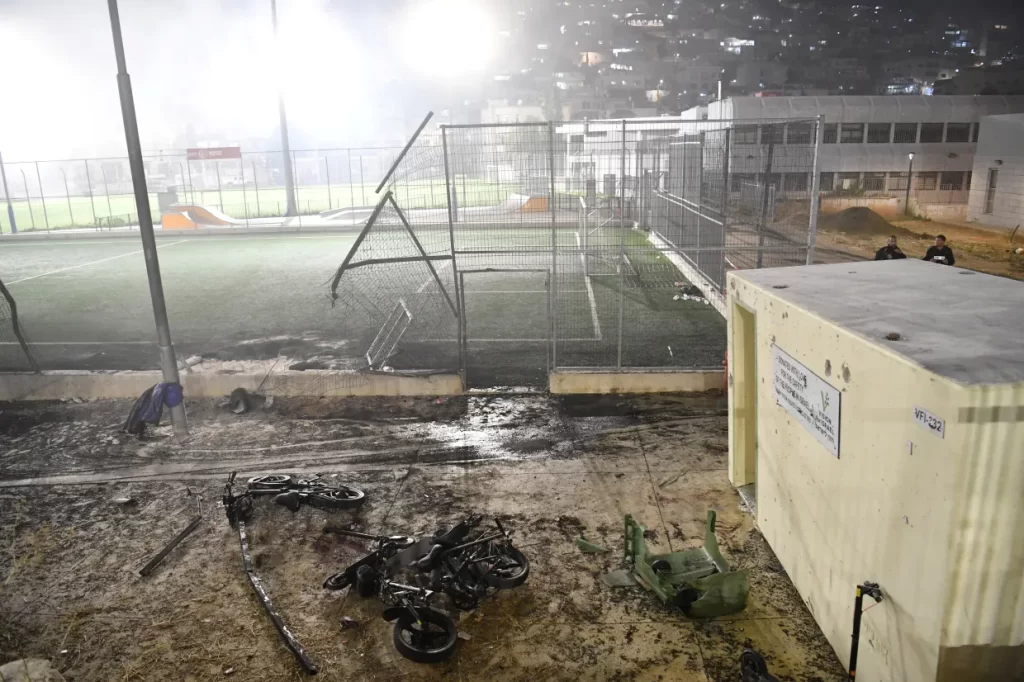Tensions in the Middle East have reached a critical point following a rocket attack in the Golan Heights that killed 12 Israeli children. As Israel prepares its response, Iran has issued a stark warning, threatening “serious consequences” for any potential Israeli action against Lebanon.

Iranian President Masoud Pezeshkian, in a phone call with French President Emmanuel Macron, stated that “Any possible Israeli attack on Lebanon will have serious consequences for Israel.” This statement, reported by Iranian state media, underscores the complex web of alliances and conflicts in the region.
The attack, which targeted a football pitch in the Druze town of Majdal Shams in Israel’s occupied Golan Heights, has been met with widespread condemnation. Hezbollah, the Lebanon-based militant group often backed by Iran, has denied responsibility for the strike.

In response to the attack, Israeli Prime Minister Benjamin Netanyahu has vowed a heavy retaliation. Reports suggest that Israel is preparing for “days of fighting” inside Lebanon. This potential escalation has prompted Hezbollah militants to evacuate some positions in southern and eastern Lebanon, anticipating Israeli strikes.
The international community is actively working to prevent further escalation. President Macron spoke with Netanyahu on Sunday, reiterating France’s commitment to “doing everything to avoid a new escalation in the region.” The French presidency emphasized its role in communicating with all parties involved in the conflict.

Funerals for the Israeli children were held yesterday, with survivors describing harrowing scenes of the attack’s aftermath. The 12th victim, 11-year-old Gevara Ebraheem, was identified overnight, adding to the tragedy that has shocked the community of 11,000 in northern Israel.
The conflict between Israel and Hezbollah has been ongoing for months, with both sides exchanging strikes. Hezbollah, estimated to have between 30,000 to 50,000 fighters and a vast arsenal of missiles and drones, poses a significant threat to regional stability.
As tensions continue to escalate, the international community watches closely. The situation remains highly volatile, with the potential for wider regional conflict. The coming days will be crucial in determining whether diplomatic efforts can prevail in preventing further violence, or if the region will descend into a more extensive conflict.



